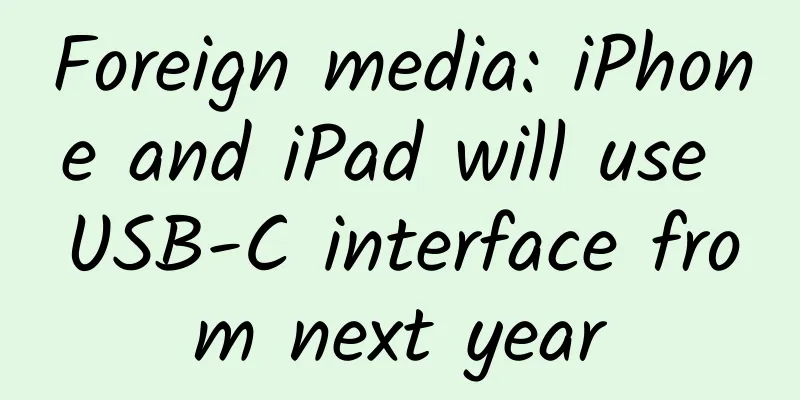Jia Yueting: If Samsung TV doesn't reform, it will be overthrown by LeTV

|
It is obvious that after experiencing the rapid vertical layout of various hardware categories from super TVs to super mobile phones, LeTV has immediately started its crazy horizontal development like an invasion. As the brand's core TV terminal product, following the comprehensive and in-depth strategic cooperation reached with TCL Multimedia at the end of last year, LeTV announced in the U.S. on the afternoon of July 26, U.S. Pacific Time, that it would acquire Vizio, the second largest TV manufacturer in the U.S. and also the largest smart TV manufacturer, for US$2 billion in all cash.With its marriage with TCL at the end of 2015 and the acquisition of Vizio in mid-2016, LeTV has begun to expand its ecological map from China to the whole world. The level of competition in the market has also risen from the battle for Internet TVs in the domestic environment to a head-on competition with international TV brands. Jia Yueting, founder, chairman and CEO of LeTV, even directly stated that even a TV brand like Samsung, which can be regarded as the industry leader in the last century, will eventually be subverted by LeTV if it does not change. What does LeTV's acquisition of Vizio mean? Founded in 2002, Vizio is headquartered in Irvine, California, USA. As a leading brand of smart TVs in North America, Vizio once ranked first in the North American TV market and currently still controls more than 20% of the market share. Vizio has been deeply involved in the US market for nearly 15 years. In the US market with mature users and fierce competition, it has successfully broken through international giants such as Samsung and LG and become the largest TV manufacturer in the United States and the second largest company in the US smart TV market. A research report issued by the authoritative multinational market research company Toluna shows that in the second quarter of 2015, Vizio surpassed the three major Japanese and Korean TV giants in terms of brand trust, comprehensive quality and appearance design, and 89% of Vizio consumers are willing to recommend the brand to their relatives and friends. The excellent brand reputation at the user level ultimately results in Vizio's annual TV sales of tens of millions, while LeTV's current global TV sales are between 6 million and 10 million and are in a gradual upward stage. It is expected that LeTV's annual TV sales will easily exceed 20 million units in the future. This figure can roughly put Samsung, currently the world's number one with annual TV sales of approximately 48 million units, within the range that LeTV is targeting for future market growth. What is more noteworthy is that, just like the cooperation with TCL Multimedia, which leverages TCL's strong capabilities in the entire supply chain of screens, chipsets and smart terminals to protect LeTV's super TV production capacity, Vizio's joining LeTV's ecosystem will be another strong support for LeTV in the smart hardware manufacturing industry chain. With Vizio's global supply chain management capabilities, Vizio has established a long-term partnership with first-tier channel dealers in the United States. The brand reaches 150,000 shelves in 8,000 retailers in North America, with a distribution channel penetration rate of up to 83%, allowing LeTV's global vertical supply chain system to take shape, which will provide a strong guarantee for LeTV to rewrite the industry landscape. LeTV VS Samsung, how did it win? LeEco's acquisition of Vizio is an important step taken by LeEco in 2016, the first year of LeEco's globalization. It is worth noting that LeEco will provide Vizio with content, technology, Internet and cloud services. In the future, the entire LeEco ecosystem will also have a deep "chemical reaction" with Vizio to help it transform and upgrade into an Internet ecological company. Therefore, although TV manufacturers are still manufacturing TV terminal products for consumers, in today's era, the requirements of users and the market for TV manufacturers are no longer as simple as hardware manufacturing. This is the advantage of LeTV, which is striving to build an "platform + content + terminal + application" ecosystem, and it is also the biggest shortcoming of TV manufacturers that currently regard themselves as traditional brands at home and abroad. LeTV is trying to subvert the industry giant Samsung, and this confidence undoubtedly comes from this. Just like the smartphone industry, which has developed rapidly and has become extremely mature in the past few years, hardware manufacturing is certainly an inherent advantage of some traditional brands. However, with the high maturity of the hardware supply chain, especially after landmark events such as LeTV joining hands with TCL and acquiring Vizio, soft aspects such as systems and content will become a more important part of the full Internetization of televisions and the success of smart TV brands in the market. In this regard, even Samsung, the best-selling brand in the world, has been eliminated by the times. Take Samsung TV as an example. The Tizen system it carries has been fully proven to be a failure on a variety of smart terminals. It may be regarded by the brand as a TV that does not have particularly high system requirements. It has become the last and only foothold of the Tizen system. The functions it brings to the TV are merely live TV or extremely limited OTT and game content. If it is regarded as a smart TV, it has almost no content. In contrast, the EUI equipped with LeTV Super TV has gone through several generations of changes with the development of Super TV. It has not only become a benchmark product for the interactive experience of smart TVs, but also, backed by the LeTV ecosystem, has become a leader in the industry in terms of content level, both in terms of the quantity of content formats, including massive resources such as film and television dramas, sports events, and content quality, with a large number of 4K ultra-high-definition film sources and high-quality games. It is reported that after the completion of the acquisition of Vizio, LeEco's large-screen ecological platform will have more than 28 million smart TV entrances, with a cumulative playback time of more than 11 billion hours and a monthly active user base of up to 730 million, which is bound to extend more operating methods and business models on the TV side. Whether you simply buy a large screen, or choose a set of large-screen smart terminal products that integrate content experience, in the TV industry, the future direction of Samsung-style development and LeTV-style development may be self-evident. It is imperative for LeTV to replicate its ecological miracle globally There is no doubt that through its ecological approach with almost no shortcomings, LeTV Super TV has defeated almost all its competitors in China. After acquiring Vizio, whether it is the further enhancement of the product itself or the further opening of the international market structure, LeTV is expected to replicate this miracle on a global scale and even become the king in the global color TV market. With the implementation of this major acquisition, LeTV has accelerated its expansion from super cars to the current television field. Jia Yueting himself also emphasized that LeTV is treating the United States as its "second home", including holding a press conference in the United States again in September this year, focusing on the release of LeTV Super TV in the United States. The mobile phones beat Apple, and the TVs challenge Samsung. The impact on the market dominance has become the most prominent label of LeTV's two most important product lines. In the ET era, the miracle of China's disruptor has enough vitality to continue. As a winner of Toutiao's Qingyun Plan and Baijiahao's Bai+ Plan, the 2019 Baidu Digital Author of the Year, the Baijiahao's Most Popular Author in the Technology Field, the 2019 Sogou Technology and Culture Author, and the 2021 Baijiahao Quarterly Influential Creator, he has won many awards, including the 2013 Sohu Best Industry Media Person, the 2015 China New Media Entrepreneurship Competition Beijing Third Place, the 2015 Guangmang Experience Award, the 2015 China New Media Entrepreneurship Competition Finals Third Place, and the 2018 Baidu Dynamic Annual Powerful Celebrity. |
<<: Does the world need Xiaomi?
>>: On the rise of Chinese companies' overseas acquisitions: a blessing or a curse?
Recommend
Why are we so easily deceived?
I wonder if you all are seeing “Shocking!” “Amazi...
How long will it take for humans to reach the moon? Why must it be done at a very fast speed? Can we just fly there slowly?
This article is based on answering a question fro...
3 tips for creating explosive short videos
As we all know, the post-epidemic era has acceler...
XY Apple Assistant: Three new iPhones of different sizes coming in autumn
iPhone 6s, as Apple's blockbuster product, wi...
As early as 60,000 years ago, did Australian people achieve "nut freedom"?
Macadamia nuts are the only native Australian pla...
CG Zhong Fenghua game scene class video tutorial
CG Zhong Fenghua Game Scene Class Video Tutorial ...
Will the digital revolution destroy the middle class?
Tablet computers , smartphones and other electron...
Interpreting ASP.NET 5 & MVC6 Series (12): Strongly Typed Routing Implementation Based on Lamda Expressions
In the previous chapter, Understanding Routing, w...
From sundials to atomic clocks, how do we tell time?
Produced by: Science Popularization China Author:...
The underlying logic of short video operations!
The power of short videos is 9 times that of long...
How to acquire 800,000 customers at low cost through growth strategies?
Introduction to the disassembly content: Disassem...
Ulanhot SEO training: How SEO services can diagnose the basic status of a website
We often come into contact with many different ty...
[Jiang Xiaoxi Talks about Poyang Lake] Are you the same, always wanting to sing something while working?
Hello, I'm Jiang Xiaoxi Poyang Lake's ric...
The era of free is coming to an end: the inevitable choice of the new wave driven by technology
We have experienced a very magical free era. Musi...
How big is the Milky Way? Chinese scientists have discovered that the Milky Way is even bigger than imagined!
Chinese scientists recently used the APOGEE near-...









